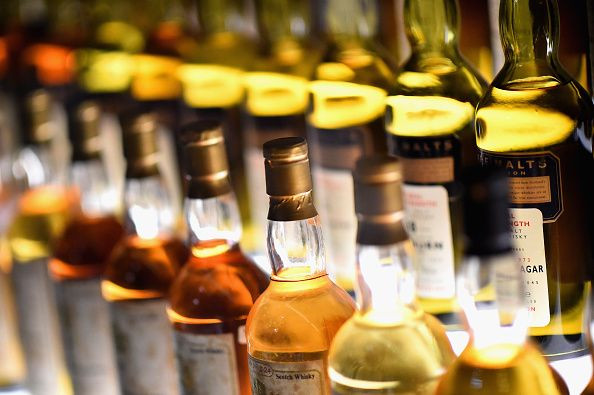Types Of Cancers Caused By Drinking Too Much Alcohol

There is strong scientific evidence that drinking too much alcohol can lead to certain types of cancer. The risk factors increase the more a person drinks, in addition to developing other diseases that can be debilitating or deadly.
According to the National Toxicology Program of the U.S. Department of Health and Human Services, even light drinkers, or those who have at least one drink per day, are exposed to significant cancer risks; so those who are considered binge drinkers are in greater danger. In fact, 2009 statistics show that 3.5 percent of the cancer-related deaths in the country, roughly 19,500, were related to alcohol use.
Of the studies on alcohol and cancer, these types have emerged to be the most common results.
Esophageal Cancer
Esophageal squamous cell carcinoma is common among those who are heavy alcohol drinkers. Compared to non-drinkers, those who drank moderately were 1.3 times more at risk for cancer while those who drank heavily were 5 times more at risk.
Colorectal Cancer
Moderate to heavy consumption of alcoholic drinks exposes a person 1.2 times to 1.5 times more to rectal and colon cancers, compared to people who do not drink.
Liver Cancer
The risk for liver cancer is two-fold in people who are heavy drinkers. The problem is evident in two types of liver cancer: intrahepatic cholangiocarcinoma and hepatocellular carcinoma.
Head and Neck Cancer
Moderate alcohol drinkers are 1.8 times more at risk for cancer, particularly of the oral cavity, pharynx (throat) and larynx (voice box). Binge drinkers are 5 times more exposed, and this is even more heightened if the person also smokes tobacco.
Breast Cancer
Light drinkers have a 1.04-fold increased risk for breast cancer, while moderate and heavy drinkers have a 1.23-fold and 1.6-fold increased risk, respectively.
It is important to note that it does not matter what type of alcohol is consumed because it is the drink itself that is proven to cause cancer. The best course of action is to reduce your risk by also reducing consumption, if it cannot be helped, or just cutting it out of your lifestyle completely. While drinking in small amounts has a much lower risk, the fact that the risk is still there remains.
© Copyright IBTimes 2025. All rights reserved.





















